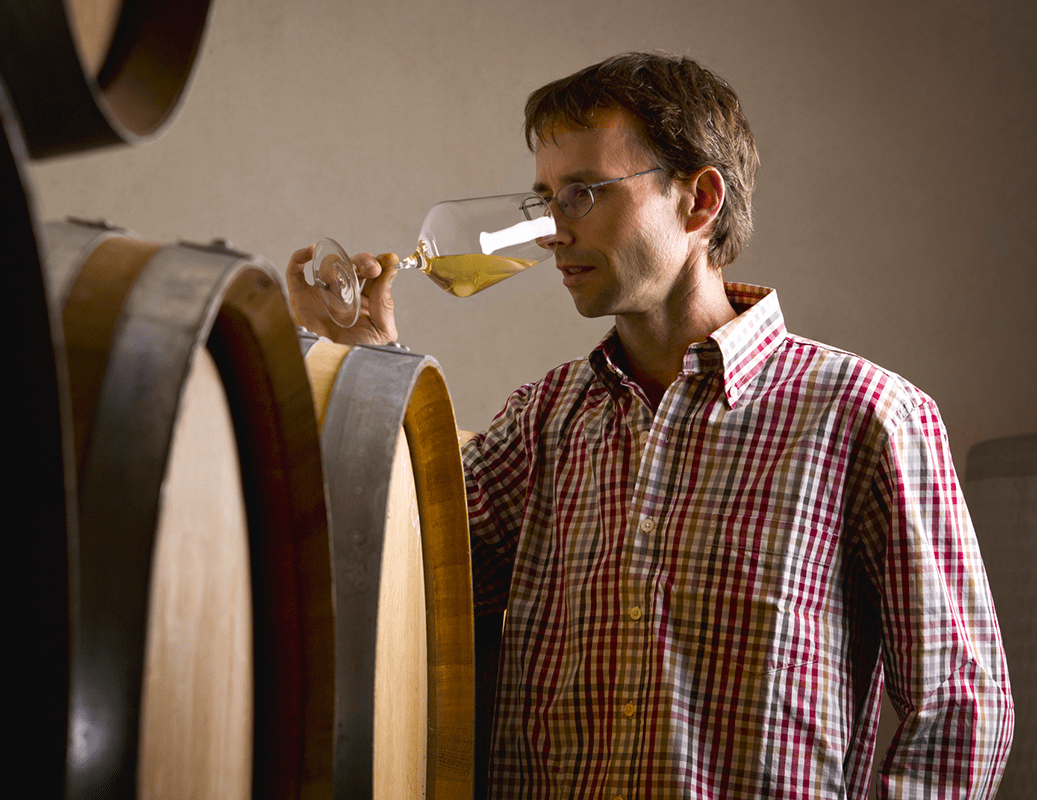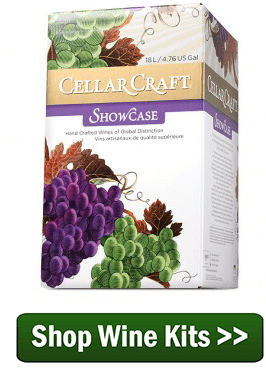 When making white wines with your wine kits they tastes fine right after fermentation, but after a while the wine gets bitter and strong. I notice it most right after I bottle the wine. What do I do to solve this problem?
When making white wines with your wine kits they tastes fine right after fermentation, but after a while the wine gets bitter and strong. I notice it most right after I bottle the wine. What do I do to solve this problem?
Name: Richard L.
State: MA
—–
Hello Richard,
Most likely you are dealing with is what’s known as “bottle shock“. This can be noticed as a flabby diminishing of the wine’s fruitiness and bouquet. The acids can seem out of whack, and in some more dramatic cases the wine can become bitter.
You as the wine making may be asking yourself at this point: “what does bottle shock even mean?” In wine making it’s the result of a reductive process that occurs when too much oxygen is saturated into the wine in too short of period. Wines need to absorb minuscule amounts of oxygen over long periods of time in order to age properly — that’s the purpose of the cork, to allow air to pass very, very slowly — but when wines absorb a too much oxygen in a short period of time, that’s what causes bottle shock.
In wine making bottle shock is something that can happen to any wine right after it has been bottled. As a wine maker I’m sure you can imagine, the process of filling the wine bottle and ramming a cork into its neck will increase the saturation of oxygen into the wine.
Bottle shock can also happen if the wine bottle is excessively agitated, such as traveling by car or whatever. This sloshing causes the cork to breath air more rapidly than intended.
The good news is the effects of bottle shock are temporary. The wine will overcome this condition given time. Just how long the bottle shock does last, depends on the severity of the condition, but usually it is a matter of one or two weeks.
Richard, hopefully your wine will experience improvements when given a little time. If it does, then you will know that bottle shock was the issue. The other possibility is a bacterial or fungal infection. Bacterial is usually more acetic in symptom and fungal more bitter. The way you will be able to tell if this is the issue is by the fact that your wine’s flavor continues getting worse and not slowly recovering.
With all that being said I am fairly confident that we are dealing with bottle shock. Just give it some time, and you should see your wine turn around.
Best Wishes,
Ed Kraus
—–
Ed Kraus is a 3rd generation home brewer/winemaker and has been an owner of E. C. Kraus since 1999. He has been helping individuals make better wine and beer for over 25 years.

I use a de-gassing paddle when I sweeten my wine to stir in a sugar syrup sweeter into the batch. I usually leave the wine sit for a day or two to see if I’ve sweetened it enough, if not I repeat the process.
Question: is using a de-gassing paddle introducing too much oxygen into the wine?
Arnie, degassing a wine in a splashing manner could introduce too much oxygen into the wine. However, the de-gassing mixing paddle works so that it does not splash the wine so it does not introduce oxygen to the wine. The following article will discuss this in more detail.
De-gassing Wine
http://www.eckraus.com/blog/will-degassing-a-wine-get-rid-of-off-flavors
Can a back sweetin wine can stay in a barrel until is ready for bottling or it has to be bottle right of way.
Thank you Joseph
Joseph, after back sweetening wine you do not need to bottle it right away. You can allow it to age in bulk before bottling.
Ed do you feel as though homemade bottling machines such as the Enol-Matic introduce too much air into the bottle?
John, we do not actually carry this product so we do not have much information. However, in looking at the description of the product, it states that it evacuates most oxygen when filling the bottles.